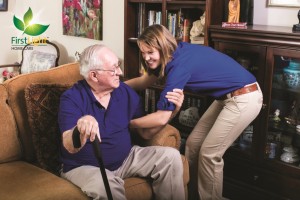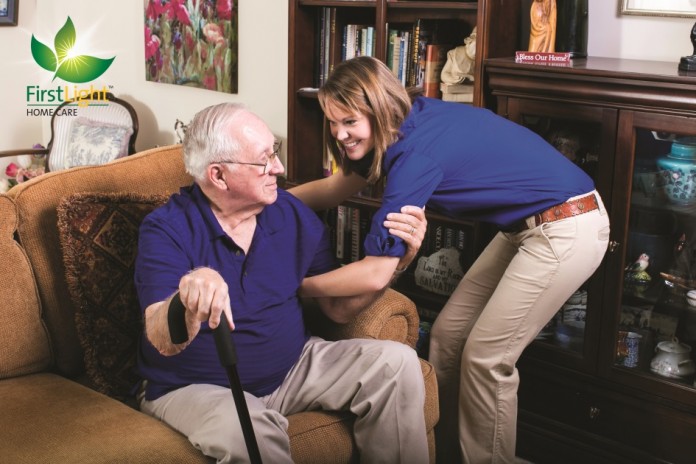Submitted by Sarah Lane for FirstLight HomeCare

Remaining independent doesn’t mean you have to be self-sufficient and do everything yourself. Knowing your limitations and when to ask for help is often the key to prevent injury and retain your quality of life as one ages.
Home care can also provide valuable respite time for family caregivers. Repeated surveys show seniors prefer to remain at home and age in place. Most people prefer to live in their own home and community where they can live by their own rules, stay near to their friends and remain in a place that is familiar.
To remain at home, many adults need only a small number of services to function independently, such as help with home maintenance, light housekeeping, laundry, shopping and cooking. Assistance with daily routines, such as bathing, dressing, grooming and eating can also help maintain independence.
Sometimes, recovering from an illness or injury – even surgery – can make it difficult to perform daily household tasks. Caregivers can offer a helping hand that makes regaining or maintaining independence easier with personalized support and sincere encouragement from experienced caregivers.
Small adaptions can also allow seniors to remain in their home. These adaptions include grab bars in the bathroom, carpeted stairs, chairs that are easy to get in and out of, additional lighting, and relocating objects to easy-to-reach cabinets or shelves.
Home care companies can provide services in a variety of situations, not just for the aging. Companies also customize caregiving services for people with disabilities, those recovering from surgery, injury or rehabilitation, new moms just home from the hospital or families of deployed military personnel—anyone who needs assistance to make life easier. A professional caregiver can also offer a break for family members who are acting as caregivers.
After my bunion surgery last year, my foot was in a boot and I was unable to move around the house or drive. Having someone there to help with meals and laundry, and take me to my doctor appointments for a few weeks was essential to my recovery.
If you have decided to hire outside support for you or a family member, you might struggle with where to start to find an outside service and even one you can trust. Gina Kaurich, a registered nurse at FirstLight HomeCare who has worked with seniors for more than three decades, offers some important items to consider:
- Hire a company that has bonded, insured and professionally trained caregivers.
- Use a company that conducts background checks to ensure that the caregiver you hire has been carefully vetted.
- Ask your doctor or your parents’ doctor. Most medical professionals have had long term relationships with caregivers and can provide recommendations on companies or individuals.
- If you hire a caregiver directly, you will want to be certain you understand the liability associated with employing a caregiver, particularly if this person will be driving you or your loved one to appointments.
-

Sarah Lane If you are hiring a company ask for recommendations. Check them out online. Call actual clients that have used their services to see what their experience was like.
“Thriving at Home” is a monthly column by Sarah Lane, a certified Home Care Aide and owner of FirstLight HomeCare — South Sound. To learn more about home care,respite care, dementia care, or any of the non-medical home care services offered by FirstLight HomeCare, give Sarah a call at 360-489-1621 or go to www.southsound.firstlighthomecare.com.



















































